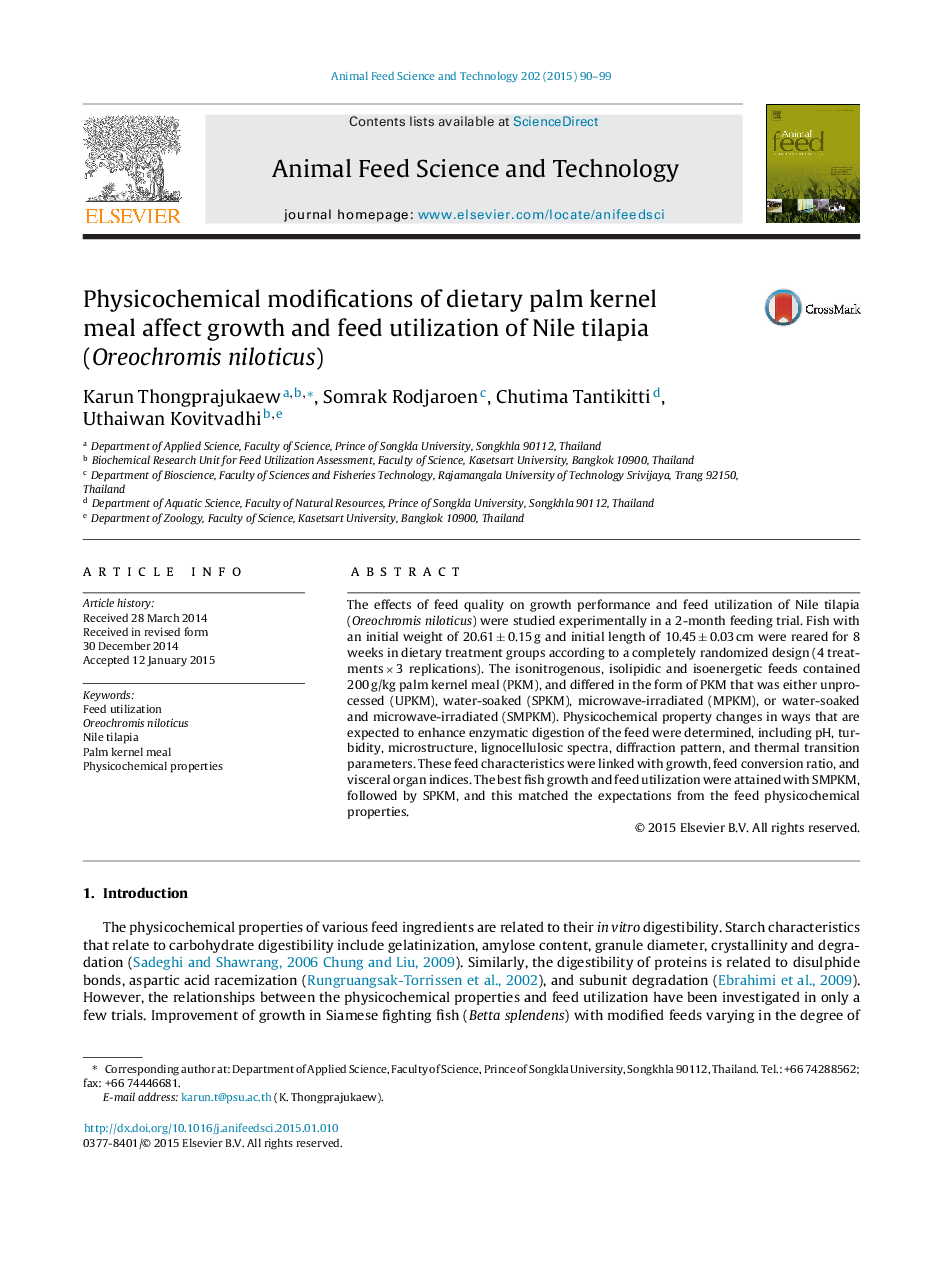| کد مقاله | کد نشریه | سال انتشار | مقاله انگلیسی | نسخه تمام متن |
|---|---|---|---|---|
| 2419425 | 1552383 | 2015 | 10 صفحه PDF | دانلود رایگان |

• Feed physicochemical properties correlate to fish growth and aquafeed utilization.
• Future non-animal testing protocols to assess the nutritional quality of feed.
• Physicochemical characteristics may be useful in quality control of feed.
The effects of feed quality on growth performance and feed utilization of Nile tilapia (Oreochromis niloticus) were studied experimentally in a 2-month feeding trial. Fish with an initial weight of 20.61 ± 0.15 g and initial length of 10.45 ± 0.03 cm were reared for 8 weeks in dietary treatment groups according to a completely randomized design (4 treatments × 3 replications). The isonitrogenous, isolipidic and isoenergetic feeds contained 200 g/kg palm kernel meal (PKM), and differed in the form of PKM that was either unprocessed (UPKM), water-soaked (SPKM), microwave-irradiated (MPKM), or water-soaked and microwave-irradiated (SMPKM). Physicochemical property changes in ways that are expected to enhance enzymatic digestion of the feed were determined, including pH, turbidity, microstructure, lignocellulosic spectra, diffraction pattern, and thermal transition parameters. These feed characteristics were linked with growth, feed conversion ratio, and visceral organ indices. The best fish growth and feed utilization were attained with SMPKM, followed by SPKM, and this matched the expectations from the feed physicochemical properties.
Journal: Animal Feed Science and Technology - Volume 202, April 2015, Pages 90–99